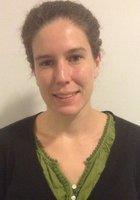Connect with hundreds of tutors like Grainne
America's #1 Tutoring Platform
Who needs tutoring?
FEATURED BY
TUTORS FROM
- YaleUniversity
- PrincetonUniversity
- StanfordUniversity
- CornellUniversity

Grainne
Bachelors, Spanish Literature
The Catholic University of America, The Thomas R. Kline School of Law at Drexel University
About Me
I'm currently an attorney practicing criminal law in Philadelphia. I've always loved helping others learn! I grew up in Philadelphia, attended Catholic University in Washington, DC for college, and came back to the area to attend law school at Drexel University. In college, I majored in Spanish Language and Literature.
Education & Certifications
The Catholic University of America
Bachelors, Spanish Literature
The Thomas R. Kline School of Law at Drexel University
Masters, Criminal Law
Q&A with Grainne
I've always found a Socratic approach to work best - that is, letting someone reach an answer by simply guiding them through what they already know (versus telling them information). Even though this process can be time-consuming and even frustrating, the end result is always the same: people are amazed that they knew more than they thought they did, and they feel accomplished by having reached a result by using their own brain.
Connect with a tutor like Grainne
Connect with a tutor like Grainne
Tutors with Similar Experience


